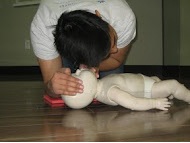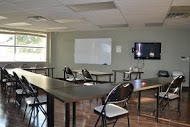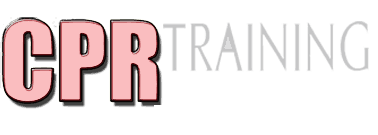
If you want to become a certified CPR rescuer, we offer a number of training courses in all six of our providers. We are located all over the US, in five states, spaced out over six cities. You can get certified for either Basic or Advanced Life Support, with three and two programs offered under each category respectively. For rescuers who want to renew certificates that are about to expire, we also have re-certification classes available through the week.
You can enrol in any of the following cities and their respective CPR providers:
- Los Angeles, California – Los Angeles CPR
- San Francisco, California – San Francisco CPR
- Honolulu, Hawaii – Honolulu CPR
- Las Vegas, Nevada – Las Vegas CPR
- Portland, Oregon – Portland CPR
- Seattle, Washington – Seattle CPR
We have the cheapest rates in the city without compromising on the quality of training we offer our trainees. Be sure to contact us during business hours – with either a call or in person – to inquire about programs.
Starting your CPR training
There are three CPR programs under Basic Life Support and two under Advanced Life Support. Basic Life Support programs are focused on training students to give basic CPR – chest compressions, rescue breaths, and defibrillation (if an AED is available). The skills are primarily taught to prepare trainees to manage cardiac arrest out of an organized, healthcare environment. BLS courses are very short, usually lasting four-hours, in a continuous single sessions. First aid for common injuries such as minor bleeding, sprains, and burns are likewise included in all BLS programs.
- Heartsaver training – 4 hours, general public
- Heartsaver (C) training – 4.5 hours, healthcare providers
- Basic Life Support for HCPs – 4.5 hours
ALS programs are more complex. They are tailored for people who work in healthcare. The programs cover the same basics such as the BLS courses but focus more on the medical management given to the patient. Medical management or interventions primarily use medications and equipment to manage cardiovascular emergencies. ALS programs are much longer as well, taking two days to complete.
- Advanced Cardiac Life Support – 16 hours, adult management
- Pediatric Advanced Life Support – 14 hours, pediatric management

Training credentials
All eight of our courses are training courses, with trainees receiving training credentials once they complete all the requirements. We have two requirements for our programs: complete attendance and a passing grade on the written exam (given at the end of training). Our training certificates are valid for two years before we require rescuers to sign up for re-certification.
When your credentials approach expiration, be sure to sign up for a re-certification class. We offer re-certification classes for the following programs:
- Basic Life Support for HCPs – 4 hours
- ACLS – 5 to 6 hours
- PALS training courses – 6 hours and 20 minutes / 8 hours and 20 minutes
If you let your certificate expire, you will have to take the training program again instead of the shorter re-certification class. We do not renew expired certificates.
